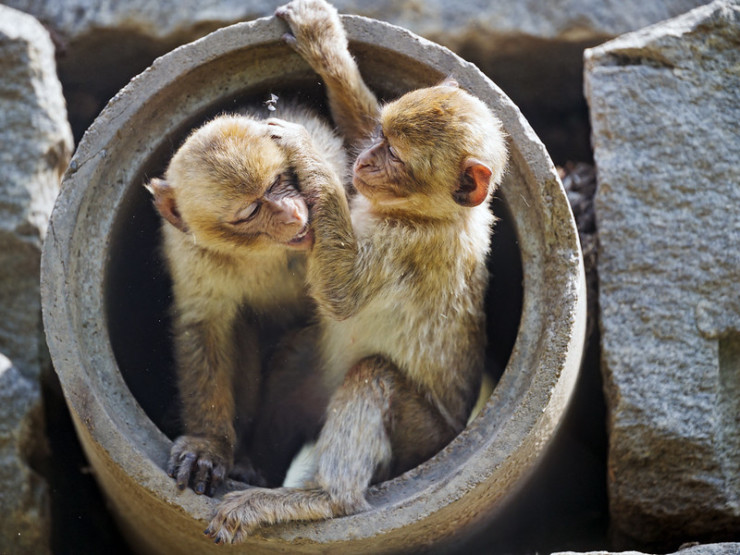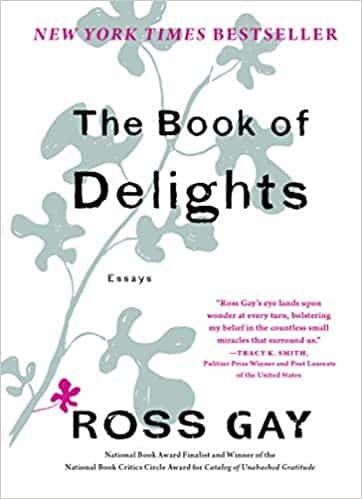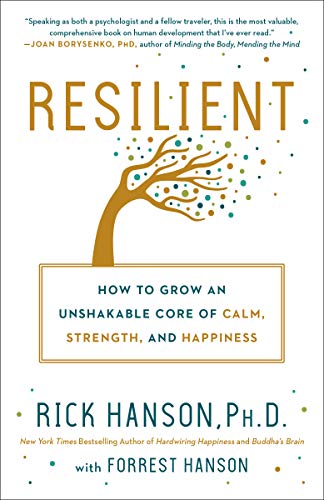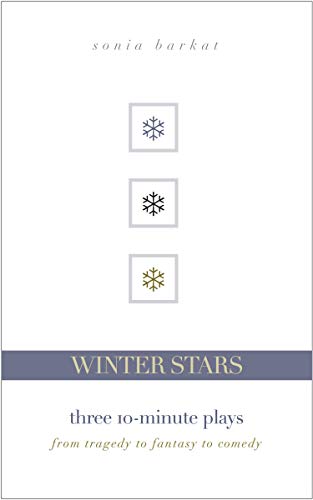
Last night, I watched a tiny gecko bed down for the night and go to sleep. I’d been out for a walk around the lake and talking to a friend on the phone, and since my phone tends to disconnect between my building entrance and the door to my apartment, I sat down on a bench to continue the call.
Occasionally the train came by, a sight and sound that warm me and remind me I am home. A woman on her balcony across the tracks was having her own phone conversation, and at times it was easier to hear hers than mine. The gecko was playing in the green space in front of me hopping from leaf to leaf in the foliage that buffered the tree line along the boulevard. The flood light meant to illuminate the tree spilled over onto the gecko and his leaves, giving him something of a stage to perform his darting leaps.
And then, he stopped. He stretched out on a single stem and didn’t move again for at least the next hour. Of course, I couldn’t get close enough to see if his eyes were open. I imagine geckos are the kind of animal whose eyes are open even when they’re closed anyway. They’ve got that translucent skin thing going on. So of course, I’m in no position to be able to say the little fella was actually asleep. But this is my little story, my little delight, and I say I watched him fall asleep.
*
I bought a bundle of lavender at Trader Joe’s last week. I’ve been letting it dry, which it’s done nicely, though the little dry buds fall off nearly every time I look at it. The fragrance is subtle. Gentle. But it’s there whenever I’m near the spot where the lavender is. Flowers aren’t really a thing I get too moved by. But I don’t feel like lavender counts as flowers so much as transportation. They can remind a person of some things when you pick up that nuanced little fragrance that takes you back to another place, another time.
*
I’m a fan of sparkling water. The kind of water that, as one of my sons says, sort of “bites you back.” But I’m not such a fan of bottles and cans, so I have a contraption in my kitchen that lets me fill a bottle with tap water and charge it with CO2. I can make it so the bite is just how I like it. I repurposed a heavy vintage green glass bottle with a wire stopper into my water bottle when I’m home. The body of the bottle is too big to grab single-handed, especially when it’s wet with condensation, so I take it by the neck and pour it into a small clear glass. It gives me a sense of pouring something else, something more foamy than sparkly, into big mugs at a rough wooden table in another century. It’s hard to say why that might feel good. Maybe it’s a small effort to counter the bunch of lavender in the background during my Zoom meetings.
*
I’ve been wondering how to come at this book club. I mean, how to recap 30+ mini essays (I love the term Ross Gay coined, essayettes) each week? How does a person engage someone else’s little delights when they are so deeply personal, so individual? And then I watched that little baby gecko (was he really a juvenile, or was he just small for his age?) go to sleep last night and remembered that I experience little delights throughout my days as well. The gecko. Lavender. Sparkling water. Toasted pecans. A song. A book. My lake. The woman walking down the hall with her dog on a leash held with one hand, and a side table lamp in the other, moving with a peculiar urgency for the accoutrements she happened to have along with her. And while my musings on my delights don’t even rise to the level of essayettes, he’s inspired me to make note of them in a new way, all the same.
I’m thinking of No. 9 The High Five from Strangers, Etc. Gay is thinking about the little ways that we communicate with each other as strangers. A nod, a touch, a shared-understanding word.
A few months ago, walking down the street in Umbertide, in Italy, a trash truck pulled up beside me and the guy in the passenger’s seat yelloed something I didn’t understand. I said, ‘Como,’ the Spanish word for ‘come again,’ which is a ridiculous thing to say because even if he had come again I wouldn’t have understood him. He knew this, and hopping out of the truck to dump in a couple of cans, he flexed his muscles, pointed at me, and smacked my biceps hard. Twice! I loved him! Or when a waitress puts her hand on my shoulder. (Forget it if she calls me honey. Baby even better.) Or someone scooting by puts their hand on my back. The handshake. The hug. I love them both.
I remember the last time I shook someone’s hand. It was in the second week of March. The idea, today, of a stranger coming close enough to punch your bicep, or for someone outside your immediate family to brush by and touch your back—it’s hard to even imagine. And yet those small, necessary connections are still there. Head-dips, waves, eye-crinkles about a mask line. Someone I don’t know very well called me a “cool cat” the other day. It’s not a phrase I would use about myself. But it meant something all the same.
In No. 10 Writing by Hand, he writes about writing by hand and writing on a computer, and the difference between them and the reasons for them. How they change the way we think, what we allow ourselves to put on paper.
Susan Sontag said somewhere something like any technology that slows us down in our writing rather than speeding us up is the one we ought to use. Her treatise on the subject, long-handist that she evidently was. (I wonder if the speed they all gobbled in the sixties and seventies counts as a technology.) And though I don’t have any particular treatise, I do want to acknowledge that writing by hand, and writing these essayettes by hand in particular, has been a surprising and utter delight.
[…]
Prose, though, I often write on the computer, piling sentences up quickly, cutting and pasting, deleting whole paragraphs without thinking anything of it.
Sontag and Gay are onto something here. I write essays on the computer. But I wrote my novel longhand. It’s partly about speed. I often felt impatient as I wrote, my mind moving faster on the story than my hand could keep up with. But the bigger plus for me writing longhand was I couldn’t really follow what I was writing. It wasn’t legible enough. So there was no time or space to rethink what went on the page. When I’m typing, I’m like Ross Gay. Cutting, pasting, deleting, rearranging. All that extra time my fingers have, to straighten things out and shift ideas around as I go. Lately I’ve had a little pain in my wrist that makes writing longhand uncomfortable, so it doesn’t feel like quite such a delight right now. But the result when I let myself go that way definitely has more of the “actual magic writing is, which comes from our bodies” that he’s reminding us about.
And then there is No. 24 Umbrella in the Cafe. Gay tells the story of reading C.D. Wright in a bakery, where, because of his longish legs and cramped space, he was a little bit in the way.
A guy on his way out, after buying his Americano and scooting by my big red bobbing foot, and smiling softly at me, and me at him, looked at the drizzle through the big plate-glass window, put his coffee down, opened his umbrella, put it over his head, picked up his coffee, then realized, I presume, that he was still inside this bakery. (The window was very clean.) I saw him giggle to himself, realizing, I think, what he had done—let me interrupt to mention that a man with a sack of some sort slung over his shoulder just entered Choc-O-Pain and exclaimed, ‘Good morning, Jersey City family!’—and so lowered his umbrella and walked quickly out, with a smirk that today I read as a smirk of gentleness, of self-forgiveness. Do you ever think of yourself, late to your meeting or peed your pants some or sent the private e-mail to the group or burned the soup or ordered your cortado with your fly down or snot on your face or opened your umbrella in the bakery, as the cutest little thing?
I did not think it was the cutest little thing when I was facilitating a virtual conference on Zoom with a few hundred attendees recently, and after having cautioned each of the presenters, quite forcefully, in fact, about not accidentally displaying any other windows on their screen except their actual presentation, went on to forget which of my windows was shared with the attendees and inadvertently shared my email with them all. No, not really the cutest little thing at all. I did think it was funny, after the embarrassment wore off (and I confirmed the email in question did not contain sensitive information). And I find it instructive, as an example, when working presenters since then. But I’m rethinking, now, whether it could also be the cutest little thing. I’m thinking these little moments (which, if we’re honest, we have a lot) can be the sort of thing we giggle at ourselves about, we smirk, we lower our umbrella and walk out the door. Self-forgiveness, reimagined as an umbrella. I could get behind this.
*
This month, we’re reading Ross Gay’s The Book of Delights together. I don’t have a set of questions for you as we reflect on these little essayettes. Instead, I just have one—whether in the pages of the book or in the byways of your week: what delights have you encountered?

Reading Schedule:
Our conversation will focus on just two or three essayettes each time, drawn from the following sections:
July 15: Ch. 1-34
July 22: Ch. 35-68
July 29: Ch. 69-102


Photo by Tambako the Jaguar, Creative Commons license via Flickr. Post by Will Willingham.
- Earth Song Poem Featured on The Slowdown!—Birds in Home Depot - February 7, 2023
- The Rapping in the Attic—Happy Holidays Fun Video! - December 21, 2022
- Video: Earth Song: A Nature Poems Experience—Enchanting! - December 6, 2022
Sandra Heska King says
This morning there was the tiniest little lizard on our newly planted milkweed. Who knew you could grow milkweed in Florida? Of course it looks nothing like the milkweed in Michigan. No butterflies yet, though–except a zebra–which is why we had it and a couple others planted. For butterflies. Not necessarily zebras. Actually, we just had the whole front area replanted, so that’s pretty much a delight. A bigger delight will be if I can keep it all alive.
Ross’ #14, “Joy is Such a Human Madness” was kind of heavy. And his last lines have stayed with me.
“What if we joined our sorrows, I’m saying.
I’m saying: What if that is joy?”
I love sparkling water, too, and have thought about getting one of those contraptions and if I actually have space on my counter, and if I could actually operate it…
Will Willingham says
It is so interesting that a chapter on joy and pleasure and delight can also be heavy and sorrowful and, as he talks about in the piece, so closely coexisting with terror. And yet here we are, as part of the human condition, and for him, part of a very specific aspect of this human condition.
I love that you are watching (and creating space for) the butterflies to come.
(The contraption is worthwhile for me. I have the non-electric model. It has a small footprint and is super easy to use, and a low-cost option for canister recharge/exchange. It is a small thing that makes my days happier, and way less costly and waste-producing than my beloved Topo Chico which is now for special occasions (aka pretty never) only.)
L.L. Barkat says
Madness, Human Such
What if
we joined
our sorrows, yours
to mine
what if
we loved
the newly others
planted
what if
the heavy
could grow
like butterflies
what if
the space
became a kind,
of whole
✨
✨
✨
Will Willingham says
This is so beautiful. I love what you’ve done with Sandra’s words, which were already something.
Megan Willome says
Because of the pandemic our yoga class has been meeting outside this summer, under a grove of mesquite and pecan trees. No matter how hot it is, there is always a southerly breeze. And I find myself delighting as I look up at the green leaves against the blue sky (a very Georgia O’Keeffe view) and being grateful for the opportunity to practice outside.
Laura says
This post is just … well, delightful :). I’m not reading along this time, though your words might change my mind. I heard an interview with Gay on NPR a few months back and after listening immediately went home and ordered this book for a friend who was fighting cancer. So much of what Gay said reminded me of how much my friend noticed life. After my friend died, I thought about asking his widow if I could have that book as a reminder of how much delight her husband brought into my life, but somehow it didn’t feel right. And somehow, I can’t bring myself to order a new one. So. I think I will follow along through your lovely words this month.
Bethany R. says
Thank you for sharing this, Laura. I’m glad you’re joining us here in whatever way is best for you.
Bethany R. says
Wonderful post. I liked the, “It’s hard to say why that might feel good. Maybe it’s a small effort to counter the bunch of lavender in the background during my Zoom meetings.”
There’s so much to choose from in the way of Ross Gay’s delights, so I’ll just pick one tiny phrase. It’s in a description in No. 36 “To Spread the Sweetness of Love.” He’s watching two people show tender attention to each other and he writes, “[…]my head twisting toward them like a sunflower as I finished the stairs and walked by[…]”
That simile made my day.